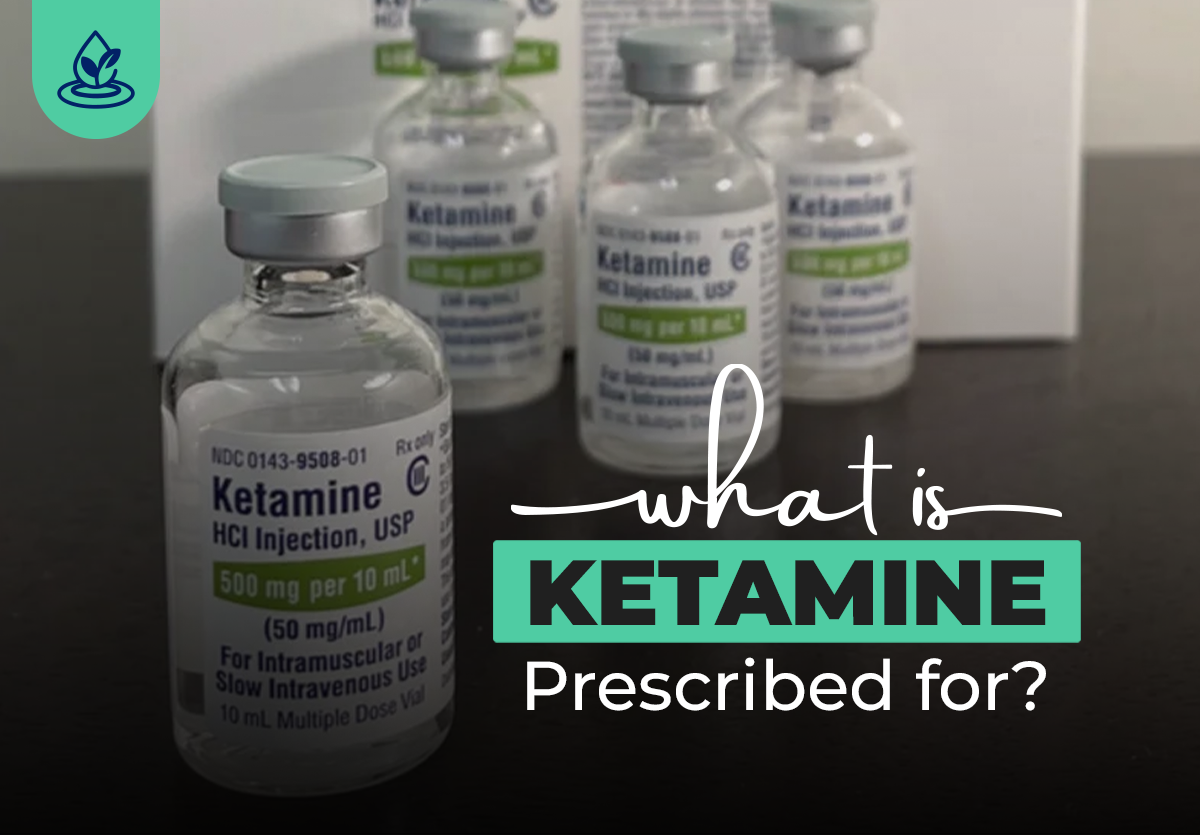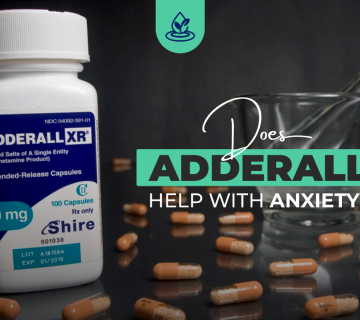Ketamine is a medical compound. It has gained attention for its unique effects and potential as a treatment. Originally developed as an anesthetic. Its unique benefits offer hope when other treatments don’t work.
Ongoing research keeps revealing new uses. This is changing how we treat various medical conditions.
Knowing “What is Ketamine prescribed for?” supports us in grasping its effectiveness and resolves inaccuracies.
Are traditional treatments not working? Try Ketamine therapy at Atlantis Wellness Center. It’s a new method for mental health and intense emotions, offering hope for relief. Visit us today.
What Is Ketamine?
Ketamine is more significant than an anesthetic. Its dissociative effects make it versatile. It effectively treats pain and mood issues.
Doctors give it as injections, nasal sprays, or pills. The drug disconnects users from their surroundings and alters perception.
Its unique properties allow it to serve in surgery and mental health care.
Where Does Ketamine Come From?
The path of Ketamine opened in the 1960s. It changed from a wild cousin of phencyclidine (PCP) to a controlled medical ally.
Now, it’s an FDA-approved anesthetic, safer than its illegal counterpart. Its main use is in surgeries. However, its potential goes beyond this.
Doctors can prescribe it off-label, exploring new therapeutic uses. These uses aren’t FDA-approved yet. But, Ketamine’s regulated status allows for careful testing under professional guidance.
How Is Ketamine Administered?
Ketamine can be supplied in different forms:
- Intravenous (IV) infusion: This practice allows for meticulous dosing and on-the-spot effects.
- Nasal spray: Patients who dislike needles may choose this treatment. It offers a practical, injection-free option.
- Oral tablets: Ketamine in pill form is convenient. But, they may be less potent than other treatments.
What Is Ketamine Prescribed For?
Ketamine, once only for anesthesia, now treats depression, chronic pain, and other conditions. Low doses fight severe depression. It still induces sleep, but its new uses offer hope for quick relief.
-
Depression
Ketamine quickly relieves severe depression, presenting possibilities. Unlike usual meds, it works in hours, not weeks. This speed is vital for suicidal patients.
Studies back its effectiveness, especially for those unresponsive to standard treatments. This breakthrough is a lifeline for those out of options.
-
Chronic Pain Management
Prolonged pain individuals attain relief from Ketamine. This anesthetic blocks certain brain receptors. It eases complex regional pain syndrome and fibromyalgia.
Ketamine offers an alternative for those with persistent pain. Its properties provide hope to patients with stubborn, treatment-resistant conditions.
-
Anxiety Disorders
Ketamine offers hope for anxiety sufferers. It steps in when traditional therapies fail. Research shows it can ease various anxiety symptoms. This includes generalized anxiety and PTSD.
Healthcare professionals are now considering it, especially for tough cases. Its quick relief is a key advantage over other treatments.
-
Postoperative Pain Relief
Surgical patients wake up with less pain, thanks to Ketamine. This drug not only reverses anesthesia but also eases discomfort. It reduces the need for addictive opioids.
By limiting side effects and addiction risks, Ketamine smooths recovery. Its ability to relieve pain and reverse anesthesia makes it vital in operating rooms.
-
Treatment-Resistant Disorders
Depression and anxiety once felt unbearable for many. Standard treatments often fail, leaving people hopeless. Then came Ketamine.
It’s a breakthrough for tough mental health issues. This therapy offers quick relief when others don’t.
Ketamine opens the path to recovery, leading to better days and renewed energy. It provides a new beginning and a healthier future for those out of options.
How Does Ketamine Work for Seizures?
In critical seizure cases, Ketamine acts with rapid effectiveness. It blocks glutamate, a key brain neurotransmitter.
As an NMDA antagonist, it reduces excessive brain stimulation that causes seizures.
Ketamine stops overactive signals, halting seizures. It protects brain cells during long episodes, lowering damage risk. It’s vital for refractory status epilepticus, where usual treatments fail.
Though not the first choice, its quick action is key in emergencies. By blocking glutamate receptors, Ketamine steps in when other methods fail.
Pros and Cons of Ketamine Treatment
When considering Ketamine therapy, it’s essential to weigh the pros and cons of Ketamine treatment:
Pros
- Rapid relief from depressive symptoms
- Effective for chronic pain management
- Minimal risk of addiction compared to opioids
Cons
- Potential for short-term memory loss
- Risk of dissociation and hallucinations
- Uncertainty about long-term effects
What Are the Long-term Effects of Ketamine Use?
Ketamine, like all drugs, has risks and side effects. Common side effects of long-term Ketamine use include:
- Nausea and vomiting
- Dizziness
- Dissociation or feelings of detachment
- Increased blood pressure
Ketamine and Liver Damage
Ketamine may harm the liver over time. Long use can affect liver health. So, regular checks are crucial for long-term users. This watchfulness helps prevent problems.
Ketamine and Alcohol Interactions
Merging Ketamine and alcohol is dangerous. Patients should avoid alcohol during Ketamine treatments. This mix can worsen side effects and cause harmful reactions. Doctors strongly warn against using these substances together due to dangerous interactions.
Do You Need a Prescription for Ketamine?
Yes, you need it. Ketamine is a Schedule III drug in the United States. It requires a prescription. It’s mainly an anesthetic.
But it may help with treatment-resistant depression and other mental health issues. Its off-label use is rising, yet caution is crucial.
Always consult a professional first to assess your needs and create a treatment plan. Expert guidance is essential. It is needed to manage its benefits and risks.
Conclusion
So, what is Ketamine prescribed for? Ketamine is vital in modern medicine, especially for tough cases. It acts with speed and alleviates pain, making it essential for doctors.
Yet, caution is essential. Always discuss risks and benefits with a healthcare professional.
Are you thinking about Ketamine? Talk to a provider first. They’ll match it to your medical history and goals.
Atlantis Wellness Center offers exceptional service. Experienced staff provide specialized attention, including Ketamine infusion therapy and Spravato Esketamine Nasal Spray. Contact us for more details.
FAQs
Can Ketamine cause seizures?
Ketamine rarely causes seizures, except in people with epilepsy. Low doses can prevent convulsions. Used correctly, it’s safe, but each patient needs careful consideration due to its mixed benefits and risks.
Is Ketamine found naturally?
Ketamine is not present in nature. This synthetic drug, created as an anesthetic in the 1960s, now has two uses. Besides surgery, it also helps people with depression and chronic pain.
Is Ketamine available over the counter?
No, Ketamine can’t be found over the counter. Getting Ketamine needs expert advice. Licensed professionals manage its use and distribution. So, talk to a healthcare provider for a prescription. They are the only ones who can safely and legally give this controlled substance.







No comment